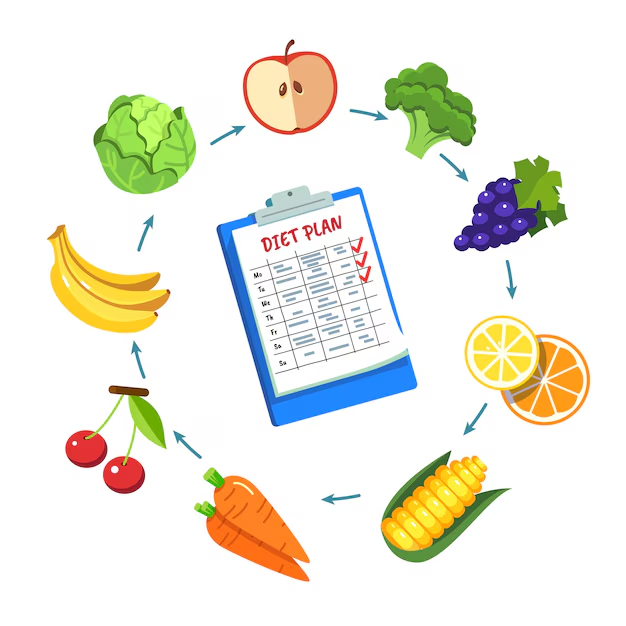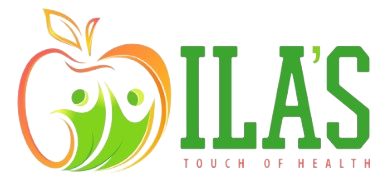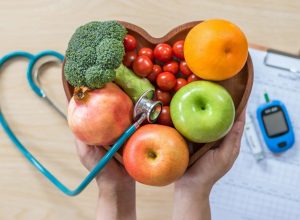Indian Pregnancy Diet Chart Month by Month [9-Month Guide]
Eating a balanced, nutritious diet during pregnancy is essential for both the mother and the baby’s health. Throughout your pregnancy, your body needs more nutrients to support the growing baby and ensure your own well-being. Following a pregnancy diet chart month by month can help you get the right amount of essential nutrients at each stage of pregnancy, promoting a healthy pregnancy journey.
This guide provides a comprehensive month-by-month Indian pregnancy diet plan. By following this you can ensure that you eat the right foods during every phase of pregnancy. It’s designed for Indian women and focuses on traditional, nutrient-dense Indian foods to support a healthy pregnancy for both mother and baby.
Importance Of A Healthy Diet During Pregnancy

A healthy diet during pregnancy is vital for the health and well-being of both the mother and the developing baby. By consuming the right nutrients, you can reduce the risk of complications such as low birth weight, gestational diabetes, and preeclampsia. A balanced diet can also improve the baby’s growth and development. This provides the right building blocks for a healthy pregnancy.
Eating well can also help the mother maintain energy levels, promote healthy weight gain, and support a positive pregnancy experience. Many of the nutrients required during pregnancy, such as calcium, iron, and folic acid, play key roles in both the mother’s and the baby’s health.
Key Nutrients for a Healthy Pregnancy
Certain nutrients are essential for a healthy pregnancy. Folic acid, which is found in green leafy vegetables and legumes, helps prevent birth defects. Iron, found in foods like lentils and spinach, is needed to produce more blood for both you and the baby. Calcium supports the development of your baby’s bones and teeth, and can be found in dairy products like milk and yogurt.
A healthy pregnancy diet should also include protein, which supports the baby’s muscle development and omega-3 fatty acids, which are important for brain development. A balance of these nutrients can support the mother’s health and the baby’s development throughout pregnancy.
Indian Pregnancy Diet Chart Month by Month
It is crucial to follow a well-balanced diet each month to meet the changing nutritional needs of the mother and baby. Below is a month-by-month Indian pregnancy diet chart that will guide you through the pregnancy journey with nutrient-rich foods at each stage.
| Pregnancy Month | What to Eat |
|---|---|
| 1st Month | Eat folic acid-rich foods like spinach, oranges, and beans to support early development. |
| 2nd Month | Add more calcium-rich foods such as dairy, tofu, and green leafy vegetables. |
| 3rd Month | Increase your intake of iron with foods like lentils, spinach, and beans to prevent anemia. |
| 4th Month | Incorporate healthy fats from avocados, nuts, and seeds for brain development. |
| 5th Month | Focus on high-protein foods like eggs, chicken, and lentils to support muscle growth. |
| 6th Month | Add fiber-rich foods like whole grains, oats, and fruits to prevent constipation. |
| 7th Month | Include omega-3 rich foods like salmon, flaxseeds, and walnuts to support brain growth. |
| 8th Month | Ensure proper hydration and consume light, easily digestible foods like soups and smoothies. |
| 9th Month | Focus on easily digestible meals such as stews and salads to keep digestion smooth. |
Trimester Wise Indian Pregnancy Diet Plan
A trimester-wise approach to pregnancy nutrition ensures that the mother and baby receive the right nutrients during each stage. Below is a trimester-wise Indian pregnancy diet plan to help you through each phase.
First Trimester (1-3 Months)
In the first trimester, the baby’s brain, spinal cord, and organs begin to form. It is essential to focus on foods rich in folic acid during this phase, as it helps prevent neural tube defects. Include spinach, lentils, and oranges in your meals to get sufficient folic acid. Additionally, many women experience morning sickness, so it’s important to eat small, frequent meals. Light and easy-to-digest foods such as fruits, nuts, and whole grains are beneficial during this stage.

Hydration is also important during the first trimester. Drink plenty of water to stay hydrated and avoid sugary or caffeinated beverages. A balanced diet with sufficient iron and calcium will support both the mother and baby’s growth.
Second Trimester (4-6 Months)
During the second trimester, the baby starts growing rapidly, and the mother’s energy needs increase. Calcium and vitamin D are crucial during this phase, as they support the baby’s bone development. Dairy products like milk and yogurt, as well as leafy greens and almonds, are great sources of calcium.

Additionally, healthy fats like those found in avocados and nuts support brain development. The second trimester is often the most comfortable phase of pregnancy, so it’s important to eat well and enjoy balanced meals with a variety of fruits, vegetables, whole grains, and proteins.
Third Trimester (7-9 Months)
In the third trimester, the baby continues to grow, and the mother may experience increased fatigue. Foods rich in omega-3 fatty acids, such as flaxseeds and walnuts, are beneficial for brain development. Small, frequent meals rich in fiber help manage digestive issues such as constipation, which is common during this stage.

Ensure you’re eating enough protein to support the baby’s growth and keep up your strength. Foods such as eggs, chicken, and lentils are excellent sources of protein that should be included in your diet.
Foods to Avoid During Pregnancy
Certain foods should be avoided during pregnancy to protect both the mother and baby. Raw or undercooked meats, unpasteurized dairy, and high-mercury fish should be avoided. These foods carry a risk of contamination, which can harm the baby’s development.
Additionally, alcohol should be completely avoided, and caffeine should be limited to avoid complications such as low birth weight. Always wash fruits and vegetables to remove any pesticides. Also avoid any foods that could cause foodborne illnesses.
Additional Tips for a Healthy Pregnancy
In addition to following a healthy diet, there are other things you can do to maintain a healthy pregnancy. Exercise is important for keeping your body strong and improving blood circulation. Light activities like walking or prenatal yoga can help you stay fit and manage stress during pregnancy.
Hydration is also crucial, as water helps with digestion and nutrient absorption. Make sure to drink plenty of water throughout the day. Finally, get enough rest to help your body recover from the physical demands of pregnancy. Sleep is essential for maintaining energy and reducing stress.
Conclusion
Following a well-structured Indian pregnancy diet chart month by month can help ensure a healthy pregnancy for both mother and baby. Eating the right foods during each stage of pregnancy can support the baby’s development and keep the mother strong and energized. By focusing on a balanced, nutrient-rich diet, staying hydrated, and avoiding harmful foods, you can enjoy a healthy and comfortable pregnancy.












